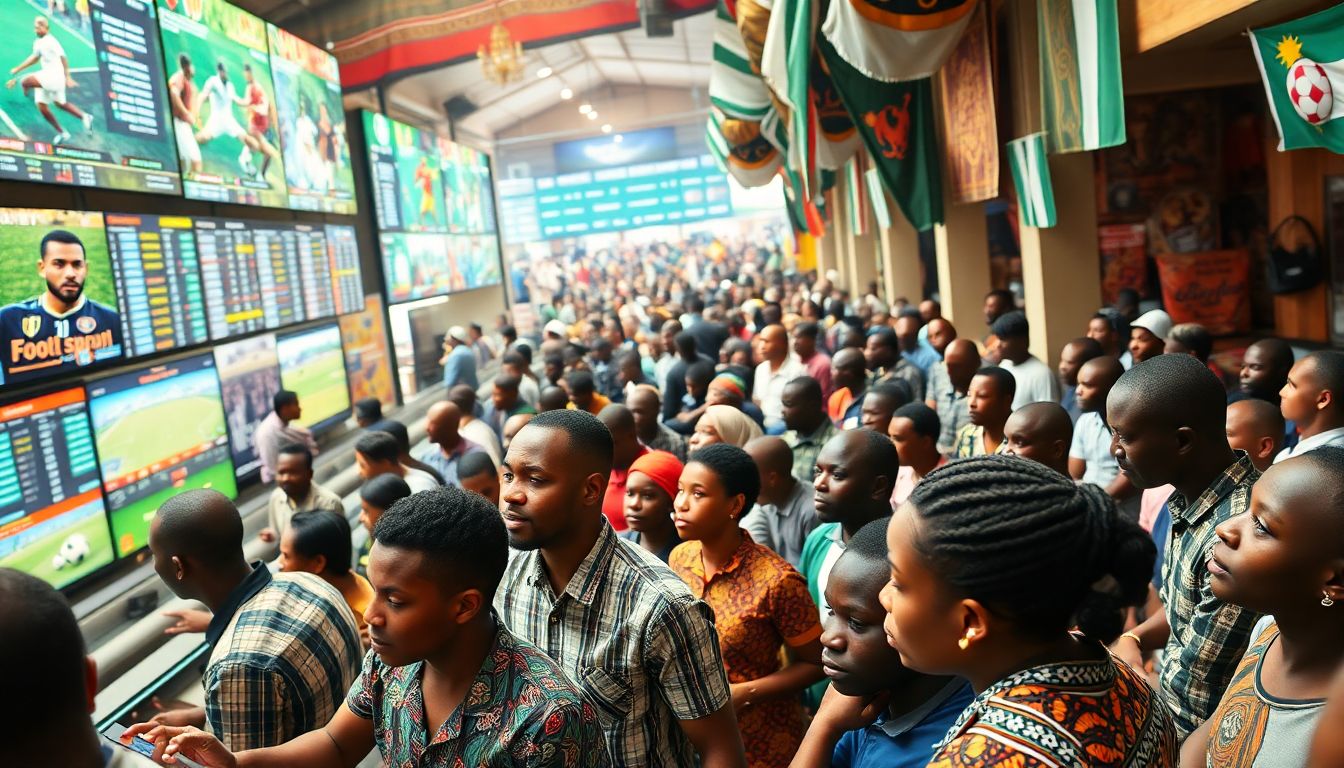The sports betting market in Nigeria has skyrocketed, with estimates showing that it generates billions in revenue annually. As more people engage in betting, understanding the laws surrounding this activity becomes critical. This article explores Nigeria’s complex legal framework for sports betting, detailing regulations, challenges, and the opportunities that lie ahead.
The National Lottery Regulatory Commission (NLRC) and its Role
NLRC’s Authority
The National Lottery Regulatory Commission (NLRC) is the primary body governing lotteries and gaming, including sports betting, in Nigeria. Established under the National Lottery Act of 2005, the NLRC has extensive powers to regulate these activities. This includes issuing licenses, setting standards, and ensuring fair play among operators.
Licensing and Permitting
Obtaining a license to operate a sports betting business is essential. The process requires operators to submit detailed applications, including business plans, security measures, and financial capabilities. Notable licensed operators include Bet9ja, NairaBet, and Merrybet, who all comply with NLRC guidelines to provide safe betting environments.
Enforcement and Penalties
The NLRC employs various mechanisms to enforce compliance among operators. Penalties for violations can include fines, license revocation, and legal actions against non-compliant operators. In recent cases, several local operators faced hefty fines for operating without valid licenses, emphasizing the importance of regulation in promoting integrity.
Key Legal and Regulatory Frameworks Governing Sports Betting
Relevant Acts and Regulations
The key legal instruments impacting sports betting in Nigeria include:
- National Lottery Act (2005): Governs lotteries and gaming activities, providing the framework for sports betting.
- Gaming Regulations: These regulations detail operational standards, player protections, and more.
Taxation of Betting Activities
Operators and players face specific tax obligations. Betting operators must pay a percentage of their revenue to the government. In recent years, tax revenue from sports betting has significantly contributed to national income, highlighting the sector’s economic impact.
Advertising and Marketing Restrictions
Regulations exist to govern how sports betting products are advertised. Operators must avoid misleading claims and ensure responsible communication in all marketing materials. These measures help protect consumers, especially young people who might be influenced by aggressive marketing.
Challenges and Issues Faced by the Nigerian Sports Betting Industry
Unlicensed Operators and Illegal Betting
The growth of unlicensed and illegal betting remains a significant issue, undermining the legal market. Reports estimate that a large percentage of bettors engage with these illegal operators due to attractive offers. This creates challenges for regulators trying to ensure a fair and safe betting environment.
Problem Gambling and Addiction
Problem gambling is an essential concern in Nigeria as more citizens participate. Organizations such as Gamblers Anonymous Nigeria offer support and resources to individuals struggling with addiction, promoting responsible gaming initiatives to curb this issue.
Money Laundering Concerns
Money laundering poses a risk in the sports betting industry. The Nigerian government has implemented various measures to prevent this, including scrutinizing transactions and requiring operators to maintain transparency in their practices.
Opportunities and Future Trends in the Nigerian Sports Betting Sector
Technological Advancements
Technology plays a crucial role in the future of sports betting. With the rise of mobile betting apps and virtual sports options, the industry is likely to continue evolving. These advancements make betting more accessible and engaging for users.
Growth Potential and Market Expansion
The Nigerian sports betting market has immense growth potential. With an increasing number of users and advancements in technology, estimates suggest that the market could double in size over the next few years, offering immense opportunities for legal operators.
Collaboration and Partnerships
Collaboration between the government, regulatory bodies, and industry stakeholders can boost the sector’s growth. Partnerships can encourage knowledge sharing and improve compliance, leading to a healthier betting environment for everyone involved.
Tips for Responsible Sports Betting in Nigeria
Choosing Licensed Operators
It’s crucial to only place bets with licensed operators. This ensures player protection and promotes fair play, keeping your gambling experience safe and enjoyable.
Setting Limits and Budgeting
Establishing betting limits helps manage spending and prevents excessive losses. Consider setting a monthly budget for your gambling activities to maintain control.
Seeking Help for Problem Gambling
For those struggling with gambling, various resources are available, such as hotlines and counseling services. Reaching out for help can lead to positive changes and improved well-being.
Conclusion
Understanding the legal landscape of sports betting in Nigeria is essential for both operators and players. Key regulations and challenges must be addressed to create a more robust industry. However, opportunities for growth and innovation also exist, emphasizing the importance of adhering to responsible gaming practices. As the sport betting sector continues to flourish, compliance with legal frameworks will lead to a safer and more thriving environment for everyone involved.








Facebook Comments